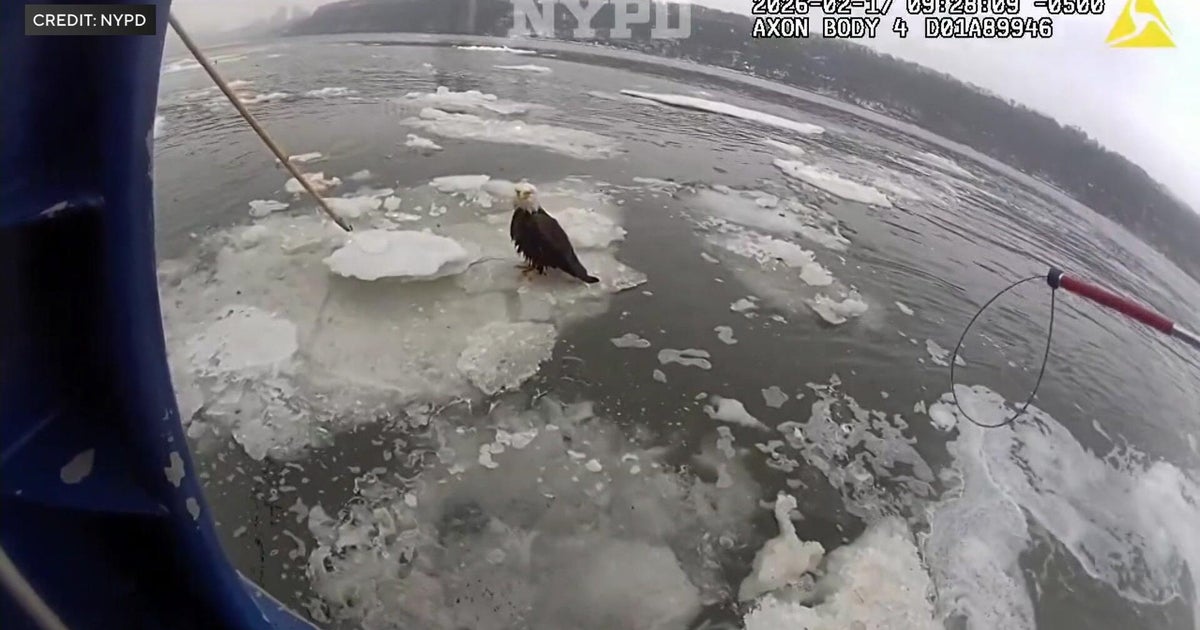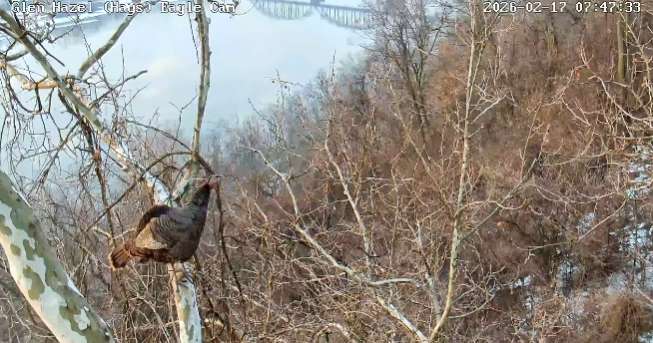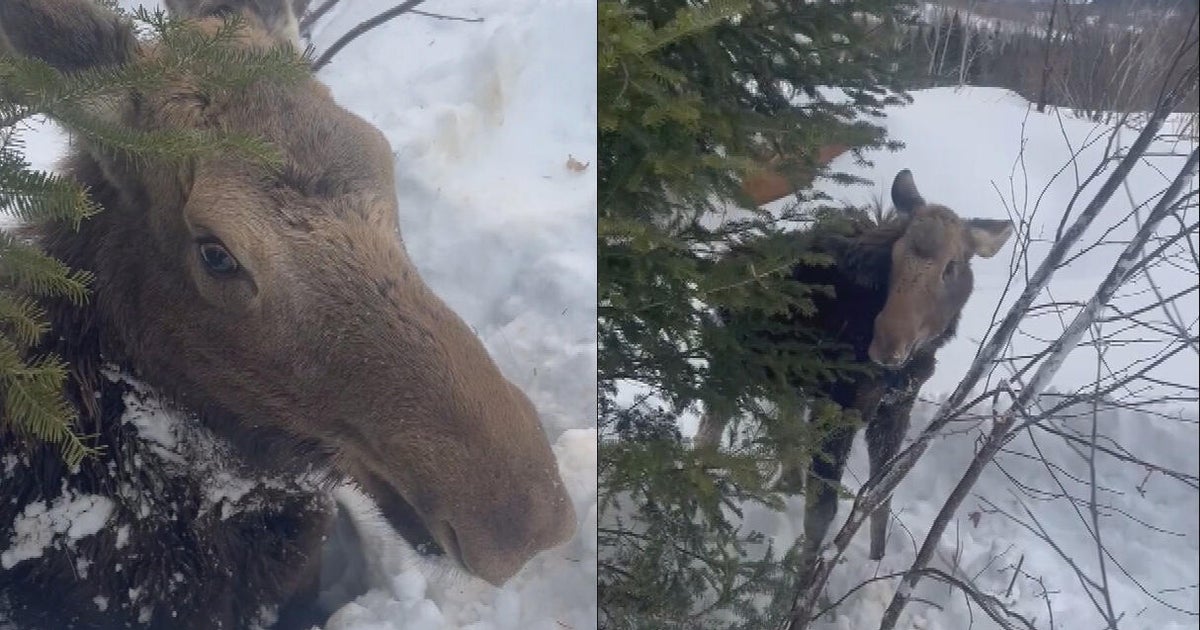Bald eagle believed to have ingested rodenticide in Arlington dies
ARLINGTON - A hopeful animal rescue in Arlington has turned tragic. A bald eagle named MK has died after fighting for her life for 36 hours. Veterinarians believe the eagle ingested rodenticide. She's not the first eagle to die this way in Arlington, nor is an eagle the only bird species. A great horned owl died last year after ingesting rodenticide in the town.
"Unfortunately, I think it's any densely populated urban area where you have this problem. I think you just have a committed community in Arlington of people who are invested and helping to look for it," said Zak Mertz, CEO of New England Wildlife Centers, "Arlington abuts some amazing habitats, and the whole Mystic watershed has some great habitats."
Mertz says this particular rodent poison stops natural blood clotting in rats and mice. It is called a second-generation anticoagulant rodenticide, also known as SGARS. The rodents become sick and slow, making them an easy target for eagles and owls. The birds eat the rodents and then become poisoned themselves.
"We took in MK a few days ago. By the time she reached our organization, Cape Cod Hospital, she was in really rough shape. She was really critical and probably one of the worst cases we have seen," said Mertz. "We had our entire veterinary team by her side around the clock. Last evening, she hadn't shown any sign of improvement but was steady. Unfortunately, she coughed up a little bit of blood. Our team jumped in right away and cleared her airway. Unfortunately, she slipped away from us. At that point, they tried to do chest compressions. Best you can do on a bird."
MK was scooped up in an Arlington cemetery and taken to New England Wildlife Center. This procedure has become all too common for Mertz and his team.
"Between our two hospitals, we take between 50 and 200 cases a year for rodenticide poisoning, and those are just the animals that make it to us," explains Mertz.
The bird's death has Arlington residents calling for a ban on this type of rodenticide. A bill has been proposed that will force pesticide companies to tell customers the risks of the poison they are using and to keep track of how much they use in an online database. It will also force state buildings or properties to use an alternative means of pest control.
"The bill passed the House and Senate last year. It came close to getting signed, but we came up against the end of the session. It has been re-filed," said Mertz.
State Representative Jim Hawkins from Attleboro is behind the bill. He believes it won't take much to get the bill passed now that it has been re-proposed. He says both House Bill 577 and Senate Bill 1144 can be co-sponsored if other legislators want to help in the push.
Residents are hosting a vigil and march at 5:30 p.m. Thursday in honor of the birds. They will meet in front of Cyrus Dallin Museum before proceeding to the town hall. The group will also go to local businesses and ask them to stop using the poison.









